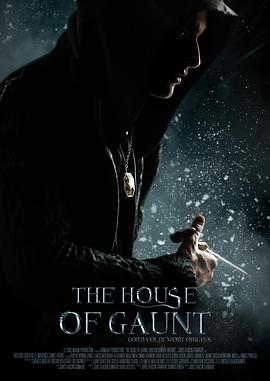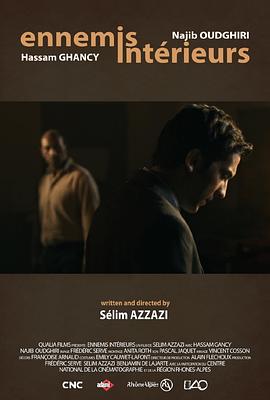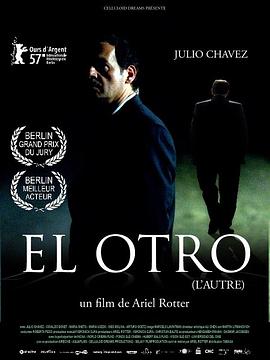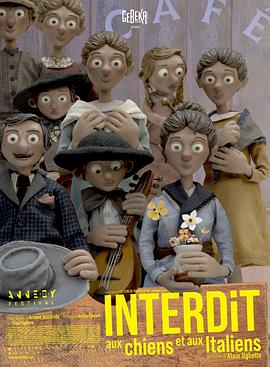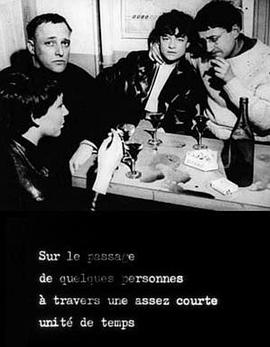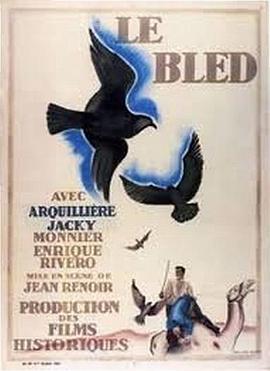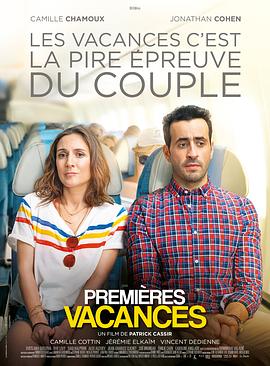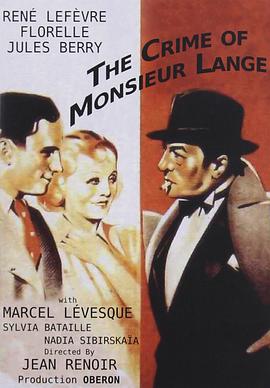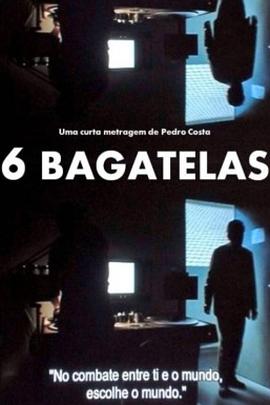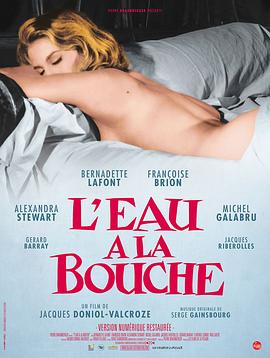-
备注:已完结
类型:剧情片
主演:马克桑斯·达奈-弗伟尔 鲁伯特·韦恩-詹姆斯 萨比恩·克洛森 Anaï
导演:乔里斯·福肯·格里莫德
语言:法语
年代:未知
简介:The House of Gaunt - Lord Voldemort Origins is a short film directed by Joris FAUCON GRIMAUD about Voldemort origins. The House of Gaunt is an unofficial short film who tells about the Voldemort origins, inspired by the Harry Potter universe from J.K. Rowling's book « Harry Potter and the Half-Blood Prince ». It is freely adapted for the screen and directed by Joris FAUCON GRIMAUD. This is a non-profit movie production that is unaffiliated andor controlled by Warner Bros. Made by fans for fans.
-
备注:已完结
类型:剧情片
主演:胡立欧·查韦斯 玛莉亚·奥内托 María Ucedo Inés Mo
导演:艾瑞尔·罗特
语言:其它
年代:未知
简介:2007柏林电影节评审团奖。 讲述一个变换身份的神秘人的故事。像往常一样,某天去另一个国家出差,却变成了另一段旅程的开始:当他到达他的目的地时,Juan Desouza发现他身边一位男子已经死亡。鬼使神差的,像进入一个游戏世界一样,他决定用这个人的身份,为自己找一份工作,找一个地方栖身,并且不希望回到过去的生活。 在他的这种新生活里,在可能的状态下,在没有目的的情况下,这个男人开始了一段探寻本性的冒险。为了重新发现他的人生观,他用自己最基本的本能,试图领悟他对生活的理解。对他来说,他选择什么生活,他为什么活着,绝不是只有一种可能。 此片由德法与阿根廷合拍,艾瑞尔-罗特为阿根廷青年导演兼编剧,继2001年推出《Sólo por hoy》(生活在他方)后,此次艾瑞尔-罗特带着《El otro》再次来到柏林。该片其导演的第二部作品。Julio Chávez曾凭借在玛莉亚.卢萨.贝姆1982年执导的文艺片《Senora de nadie》(无丈妻身),在巴拿马影展中获得最佳女演员奖,该片堪称八十年代阿根廷电影的经典之作。其出演的影片《守护者》是56届柏林电影节参展影片。
-
备注:已完结
类型:剧情片
主演:未知
导演:居伊·德波
语言:法语
年代:未知
简介:Voice 1 (male professional announcer type) This neighborhood(1) was made for the wretched dignity of the petty bourgeoisie, for respectable occupations and intellectual tourism. The sedentary population of the upper floors was sheltered from the influences of the street. This neighborhood has remained the same. It was the strange setting of our story, where a systematic questioning of all the diversions and works of a society, a total critique of its idea of happiness, was expressed in acts. These people also scorned subjective profundity. They were interested in nothing but an adequate and concrete expression of themselves. Voice 2 (Debord, monotone) Human beings are not fully conscious of their real life - usually groping in the dark; overwhelmed by the consequences of their acts; at every moment groups and individuals find themselves confronted with results they have not wished. Voice 1 They said that oblivion was their ruling passion. They wanted to reinvent everything each day; to become the masters and possessors of their own lives. Just as one does not judge a man according to the conception he has of himself, one cannot judge such periods of transition according to their own consciousness; on the contrary, one must explain the consciousness through the contradictions of material life, through the conflict between social conditions and the forces of social production. The progress achieved in the domination of nature was not yet matched by a corresponding liberation of everyday life. Youth passed away among the various controls of resignation. Our camera has captured for you a few aspects of a provisional microsociety. The knowledge of empirical facts remains abstract and superficial as long as it is not concretized by its integration into the whole ” which alone permits the supersession of partial and abstract problems so as to arrive at their concrete essence, and implicitly at their meaning. This group was on the margins of the economy. It tended toward a role of pure consumption, and first of all the free consumption of its time. It thus found itself directly engaged in qualitative variations of everyday life but deprived of any means to intervene in them. The group ranged over a very small area. The same times brought them back to the same places. No one went to bed early. Discussion on the meaning of all this continued... Voice 2 Our life is a journey ” In the winter and the night. ” We seek our passage...� Voice 1 The abandoned literature nevertheless exerted a delaying action on new affective formulations. Voice 2 There was the fatigue and the cold of the morning in this much-traversed labyrinth, like an enigma that we had to resolve. It was a looking-glass reality through which we had to discover the potential richness of reality. On the bank of the river evening began once again; and caresses; and the importance of a world without importance. Just as the eyes have a blurred vision of many things and can see only one clearly, so the will can strive only incompletely toward diverse objects and can completely love only one at a time. Voice 3 (young girl) No one counted on the future. It would never be possible to be together later, or anywhere else. There would never be a greater freedom. Voice 1 The refusal of time and of growing old automatically limited encounters in this narrow, contingent zone, where what was lacking was felt as irreparable. The extreme precariousness of the means of getting by without working was at the root of this impatience which made excesses necessary and breaks definitive. Voice 2 One never really contests an organization of existence without contesting all of that organization's forms of language. Voice 1 When freedom is practiced in a closed circle, it fades into a dream, becomes a mere representation of itself. The ambiance of play is by nature unstable. At any moment ordinary life� can prevail once again. The geographical limitation of play is even more striking than its temporal limitation. Any game takes place within the contours of its spatial domain. Around the neighborhood, around its fleeting and threatened immobility, stretched a half-known city where people met only by chance, losing their way forever. The girls who found their way there, because they were legally under the control of their families until the age of eighteen, were often recaptured by the defenders of that detestable institution. They were generally confined under the guard of those creatures who among all the bad products of a bad society are the most ugly and repugnant nuns. What usually makes documentaries so easy to understand is the arbitrary limitation of their subject matter. They describe the atomization of social functions and the isolation of their products. One can, in contrast, envisage the entire complexity of a moment which is not resolved into a work, a moment whose movement indissolubly contains facts and values and whose meaning does not yet appear. The subject matter of the documentary would then be this confused totality. Voice 2 The era had arrived at a level of knowledge and technical means that made possible, and increasingly necessary, a direct construction of all aspects of a liberated affective and practical existence. The appearance of these superior means of action, still unused because of the delays in the project of liquidating the commodity economy, had already condemned aesthetic activity, whose ambitions and powers were both outdated. The decay of art and of all the values of former mores had formed our sociological background. The ruling class's monopoly over the instruments we needed to control in order to realize the collective art of our time had excluded us from a cultural production officially devoted to illustrating and repeating the past. An art film on this generation can only be a film on its absence of real creations. Everyone unthinkingly followed the paths learned once and for all, to their work and their home, to their predictable future. For them duty had already become a habit, and habit a duty. They did not see the deficiency of their city. They thought the deficiency of their life was natural. We wanted to break out of this conditioning, in quest of another use of the urban landscape, in quest of new passions. The atmosphere of a few places gave us intimations of the future powers of an architecture it would be necessary to create to be the support and framework for less mediocre games. We could expect nothing of anything we had not ourselves altered. The urban environment proclaimed the orders and tastes of the ruling society just as violently as the newspapers. It is man who makes the unity of the world, but man has extended himself everywhere. People can see nothing around them that is not their own image; everything speaks to them of themselves. Their very landscape is alive. There were obstacles everywhere. There was a cohesion in the obstacles of all types. They maintained the coherent reign of poverty. Everything being connected, it was necessary to change everything by a unitary struggle, or nothing. It was necessary to link up with the masses, but we were surrounded by sleep. Voice 3 The dictatorship of the proletariat is a desperate struggle, bloody and bloodless, violent and peaceful, military and economic, educational and administrative, against the forces and traditions of the old world. Voice 1 In this country it is once again the men of order who have rebelled. They have reinforced their power. They have been able to aggravate the grotesqueness of the ruling conditions according to their will. They have embellished their system with the funereal ceremonies of the past. Voice 2 Years, like a single instant prolonged to this point, come to an end. Voice 1 What was directly lived reappears frozen in the distance, fit into the tastes and illusions of an era, carried away with it. Voice 2 The appearance of events that we have not made, that others have made against us, now obliges us to be aware of the passage of time, its results, the transformation of our own desires into events. What differentiates the past from the present is precisely its out-of-reach objectivity; there is no more should-be; being is so consumed that it has ceased to exist. The details are already lost in the dust of time. Who was afraid of life, afraid of the night, afraid of being taken, afraid of being kept Voice 3 What should be abolished continues, and we continue to wear away with it. We are engulfed. We are separated. The years pass and we haven't changed anything. Voice 2 Once again morning in the same streets. Once again the fatigue of so many similarly passed nights. It is a walk that has lasted a long time. Voice 1 Really hard to drink more. Voice 2 Of course one might make a film of it. But even if such a film succeeds in being as fundamentally disconnected and unsatisfying as the reality it deals with, it will never be more than a re-creation ” poor and false like this botched traveling shot. Voice 3 There are now people who pride themselves on being authors of films, as others were authors of novels. They are even more backward than the novelists because they are unaware of the decomposition and exhaustion of individual expression in our time, ignorant of the end of the arts of passivity. They are praised for their sincerity since they dramatize, with more personal depth, the conventions of which their life consists. There is talk of the liberation of the cinema. But what does it matter to us if one more art is liberated through which Tom, Dick or Harry can joyously express their slavish sentiments The only interesting venture is the liberation of everyday life, not only in the perspectives of history but for us and right away. This entails the withering away of alienated forms of communication. The cinema, too, has to be destroyed. Voice 2 In the final analysis, stars are created by the need we have for them, and not by their talent or lack of talent or even by the film industry or advertising. Miserable need, dismal, anonymous life that would like to expand itself to the dimensions of cinema life. The imaginary life on the screen is the product of this real need. The star is the projection of this need. The images of the advertisements during the intermissions are more suited than any others for evoking an intermission of life. To really describe this era it would no doubt be necessary to show many other things. But what would be the point Better to grasp the totality of what has been done and what remains to be done than to add more ruins to the old world of the spectacle and of memories. 1. This film, which evokes the lettrist experiences at the origin of the situationist movement, opens with shots of the Paris district frequented by the lettrists in the early 1950s.
-
备注:已完结
类型:剧情片
主演:Alexandre Arquillière Jackie Monnie
语言:法语
年代:未知
简介:Claudie, a young French woman, inherits her uncle's property in Algeria, much to the disappointment of her scheming cousins Diane and Manuel. On the ferry she meets and falls for Pierre, an idle young man who has squandered his inheritance and is on his way to beg from Christian, his rich but rough-and-ready uncle, who owns a neighbouring farm to Claudie's. Made to work on the farm by Christian as a loan condition, Pierre is soon a changed man, and proposes to Claudie. But when his Arab friend Zoubir invites the Europeans on a hunting party, Diane and Manuel see their chance to move against their cousin.
-
备注:已完结
类型:喜剧片
语言:法语
年代:未知
简介:一次偶然中,本(乔纳森·科恩 Jonathan Cohen 饰)结识了漫画家玛丽安(卡米尔·查莫 Camille Chamoux 饰),两人都深深的被对方所散发出来的魅力所吸引,慢慢走到了一起。本邀请玛丽安和他一起出去玩,两人将旅行的目的地选在了保加利亚。哪知道在预定的民宿中,本和玛丽安屡屡闯祸,最终被主人赶出了民宿。 之后,两人又在误打误撞之下来到了罗多彼山脉,经历了仿佛野人一般的山林生活,这对于本来说是彻彻底底的灾难。最终,本和玛丽安总算抵达了目的地,本也渐渐的放下心防,决定好好地享受这场度假,哪知道玛丽安却出问题了。枯燥无聊的日子让玛丽安几乎要崩溃了。
-
备注:已完结
类型:喜剧片
导演:让·雷诺阿
语言:法语
年代:未知
简介:朗治(瑞奈·列费夫尔 René Lefèvre 饰)在一间印刷厂里做了一辈子的文员,撇开正式职业不谈,他还有一颗成为作家的心,常常在业余时间创作漫画和小说。一天,朗治的老板因为贪腐诈骗的罪行东窗事发选择了跑路,却在路上遭遇车祸下落不明,为了维持印刷厂的正常运作,朗治被推举成为了印刷厂的临时管事人,在朗治和其他员工们的努力经营之下,本来濒临倒闭的印刷厂不仅避免了关门大吉的命运,还有了不菲的盈利。 一天,老板巴尔塔(朱尔·贝里 Jules Berry 饰)忽然出现在了朗治的面前,大难不死的他不仅企图侵吞朗治和工人们的所有劳动成果,甚至想要将朗治的女友据为己有。
-
备注:已完结
类型:剧情片
主演:Danièle Huillet Jean-Marie Straub
语言:法语
年代:未知
简介:Six unused scenes from WHERE LIES YOUR HIDDEN SMILE One of the more priceless of the bagatelles in this collection features a lounging Jean-Marie Straub who gives a non-stop disquisition on liberty and filmmaking while Danièle Huillet busies herself with laundry, and their dog Melchior frisks in and out of frame.
